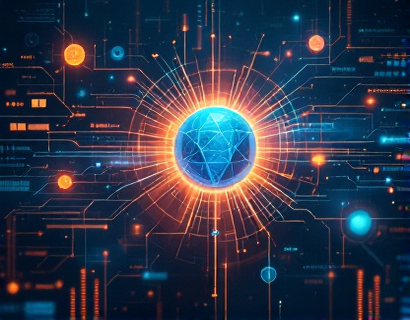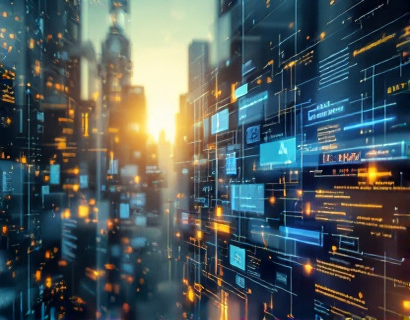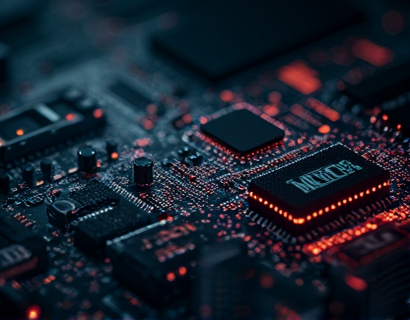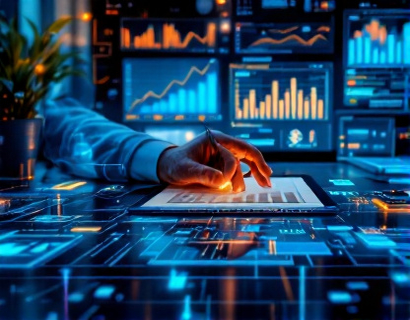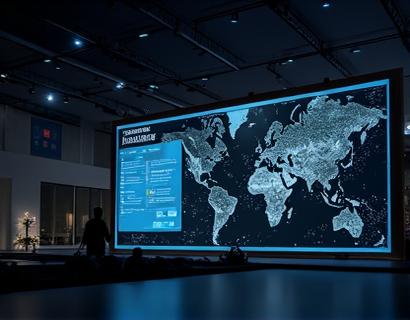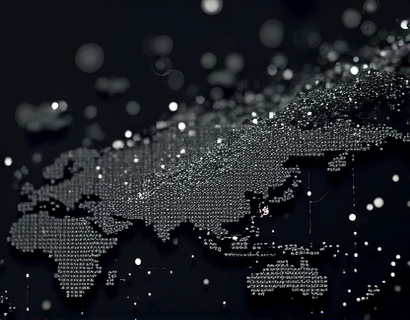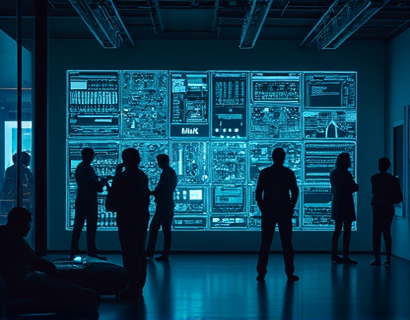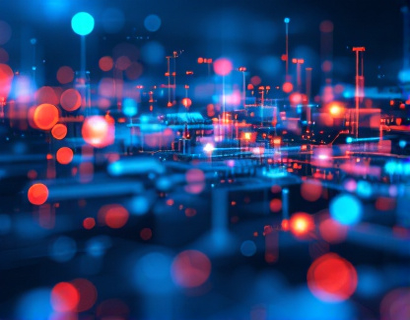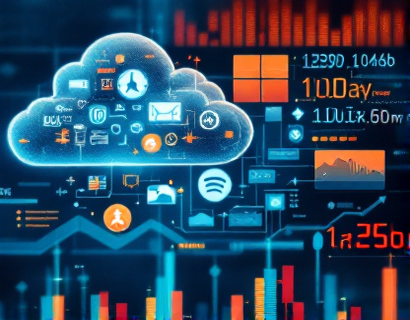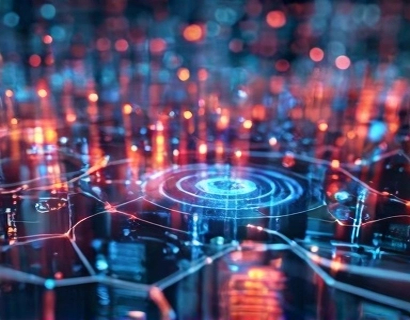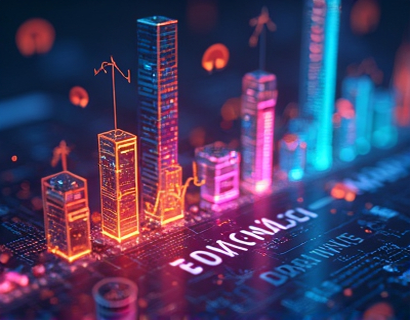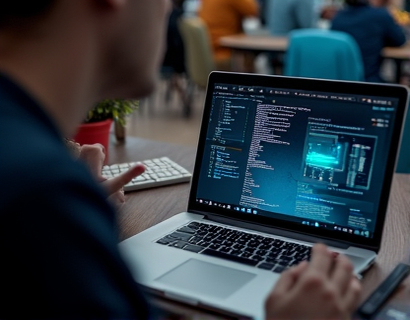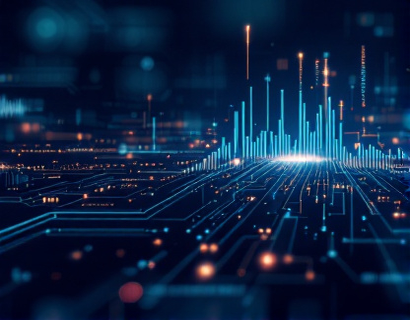Decentralized Productivity Enhanced: Leveraging AI and Crypto for Next-Gen App Ecosystems
The integration of artificial intelligence (AI) and cryptocurrency is paving the way for a new era of productivity tools. This synergy is not just a technological curiosity but a practical solution to enhance user experiences and streamline tasks across various domains. As we delve into this topic, it's essential to understand how these technologies are merging to create advanced, decentralized app ecosystems that promise to revolutionize the way we work and interact with digital solutions.
The foundation of this revolution lies in the decentralized nature of blockchain technology. Traditional app ecosystems are centralized, meaning they rely on a single entity or a small group of entities to manage and control the system. This centralization can lead to bottlenecks, security vulnerabilities, and a lack of transparency. In contrast, decentralized ecosystems distribute control across a network of nodes, ensuring that no single point of failure exists. This distribution not only enhances security but also promotes transparency and user autonomy.
AI, on the other hand, brings intelligence and adaptability to these decentralized systems. By leveraging machine learning algorithms, AI can analyze vast amounts of data to identify patterns, make predictions, and automate complex tasks. When combined with the decentralized infrastructure, AI can enhance productivity by providing intelligent, context-aware tools that adapt to user needs in real-time. This combination creates a powerful synergy that is reshaping the landscape of digital applications.
Decentralized Productivity Tools: A New Paradigm
Decentralized productivity tools are redefining how we manage tasks, collaborate, and store data. These tools operate on blockchain networks, ensuring that all transactions and data exchanges are secure, transparent, and immutable. One of the key benefits of this approach is the elimination of intermediaries. Users can directly interact with the tools and each other without relying on centralized servers, reducing latency and increasing efficiency.
For instance, decentralized project management platforms allow teams to collaborate seamlessly, with all project data stored on a blockchain. This ensures that every team member has access to the most up-to-date information, and changes are recorded in a tamper-proof manner. AI can further enhance these platforms by providing predictive analytics, automating routine tasks, and offering personalized recommendations based on user behavior and project metrics.
Another area where decentralized tools excel is in data management. Traditional cloud storage solutions often raise concerns about data privacy and security. Decentralized storage solutions, such as IPFS (InterPlanetary File System), use blockchain to create a distributed network for storing and sharing files. AI can optimize this process by intelligently routing data to the most efficient nodes, ensuring fast access and minimal bandwidth usage. This combination not only enhances security but also reduces costs and improves performance.
AI-Driven Enhancements in Decentralized Applications
AI plays a crucial role in enhancing the functionality and user experience of decentralized applications. One of the primary ways AI contributes is through natural language processing (NLP). Decentralized chatbots and virtual assistants powered by AI can understand and respond to user queries in real-time, providing personalized assistance and guidance. These AI-driven assistants can integrate with various decentralized services, from finance to healthcare, offering a seamless and intuitive user experience.
Moreover, AI can significantly improve the security of decentralized applications. By analyzing network traffic and user behavior, AI algorithms can detect and mitigate potential threats in real-time. This proactive approach to security is essential in a decentralized environment where traditional security measures may not be as effective. AI can also enhance the user onboarding process by identifying and resolving potential issues before they become problematic, ensuring a smooth and secure user experience.
In the realm of smart contracts, AI can optimize the execution and management of these self-executing contracts. AI algorithms can analyze contract terms, predict outcomes, and suggest improvements to ensure that contracts are fair and efficient. This not only reduces the risk of errors but also enhances the trust and reliability of decentralized transactions.
Use Cases: Transforming Industries with Decentralized AI Solutions
The potential applications of decentralized AI solutions span across various industries, each benefiting from the unique advantages of this technology combination. Let's explore some key use cases to understand the transformative impact of decentralized productivity enhanced by AI.
In the finance sector, decentralized finance (DeFi) platforms are leveraging AI to create more efficient and accessible financial services. AI-powered decentralized trading bots can analyze market data, identify trends, and execute trades with minimal human intervention. This not only increases trading efficiency but also reduces the risk of human error. Additionally, AI can enhance the security of DeFi protocols by detecting and preventing fraudulent activities in real-time.
The healthcare industry is another area where decentralized AI solutions can make a significant difference. Decentralized health records managed on blockchain ensure that patient data is secure, private, and easily accessible to authorized healthcare providers. AI can analyze this data to provide personalized medical recommendations, predict disease outbreaks, and optimize treatment plans. The integration of AI with decentralized health platforms can lead to more accurate diagnostics, better patient outcomes, and a more efficient healthcare system.
In the supply chain industry, decentralized tracking and verification systems powered by AI can enhance transparency and efficiency. By recording every step of the supply chain on a blockchain, stakeholders can trace the origin and movement of goods in real-time. AI can optimize logistics by predicting demand, reducing inventory costs, and streamlining delivery processes. This not only improves operational efficiency but also builds trust among all parties involved.
Challenges and Considerations
While the potential of decentralized AI-enhanced productivity tools is vast, there are several challenges and considerations that need to be addressed. One of the primary challenges is scalability. Blockchain networks, especially those using proof-of-work consensus mechanisms, can face scalability issues due to limited transaction throughput. However, the development of more efficient consensus algorithms and layer 2 solutions is addressing these concerns, making decentralized systems more scalable and performant.
Another challenge is the user adoption curve. Decentralized technologies can be complex and require a certain level of technical understanding. To overcome this, user-friendly interfaces and intuitive onboarding processes are essential. Education and community support play a crucial role in helping users embrace and effectively utilize these new tools.
Regulatory considerations also come into play, as the intersection of AI and cryptocurrency operates in a relatively uncharted legal landscape. Ensuring compliance with existing regulations while advocating for supportive frameworks is crucial for the sustainable growth of decentralized AI applications.
Future Outlook: The Next Generation of App Ecosystems
Looking ahead, the integration of AI and cryptocurrency in app ecosystems is poised to drive significant advancements. As technology continues to evolve, we can expect more sophisticated AI algorithms that can handle even more complex tasks within decentralized environments. The development of cross-chain interoperability will enable seamless integration of different blockchain networks, creating a more unified and efficient ecosystem.
Moreover, the rise of Web3, the next generation of the internet built on blockchain technology, will further accelerate the adoption of decentralized AI solutions. Web3 promises a more open, secure, and user-centric web, where decentralized applications and services become the norm. AI will be a cornerstone of this new web, providing the intelligence and adaptability needed to create truly transformative digital experiences.
In conclusion, the synergy of AI and cryptocurrency is not just a technological trend but a fundamental shift in how we approach productivity and digital interactions. By embracing decentralized app ecosystems enhanced by AI, we can unlock new levels of efficiency, security, and user empowerment. As we continue to explore and innovate in this space, the future of productivity looks brighter and more interconnected than ever before.





